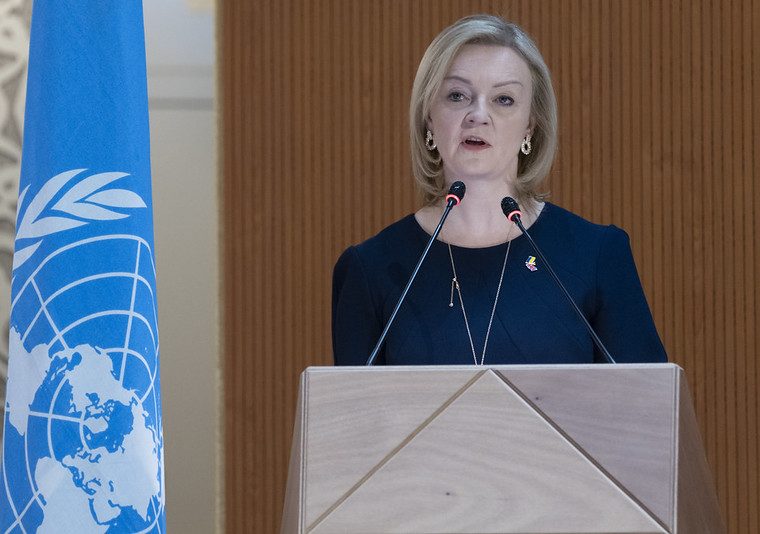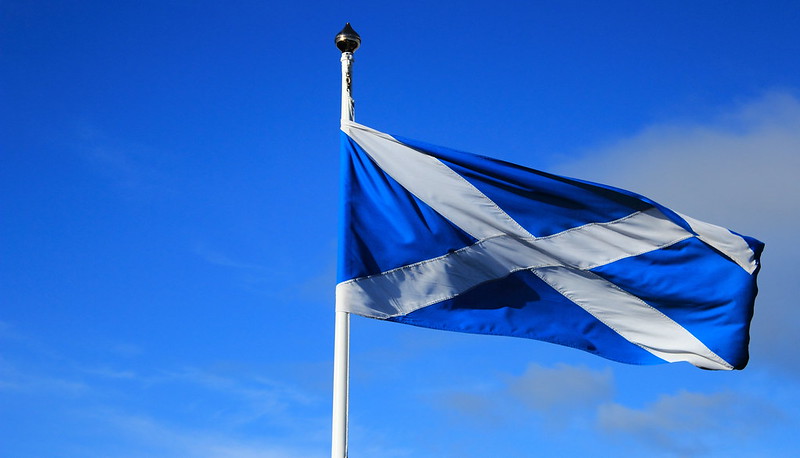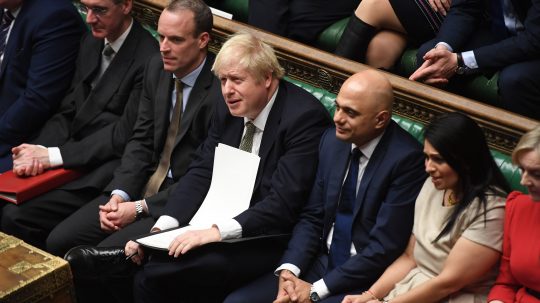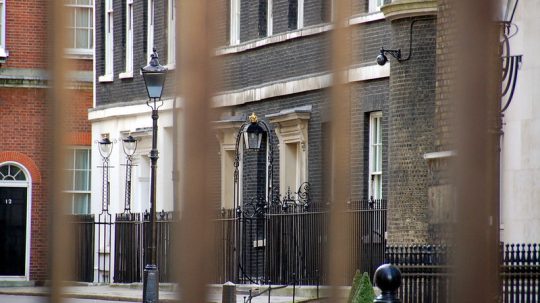Liz Truss has just been voted by Conservative peers and members to be the next prime minister. The former secretary of state for foreign, commonwealth and development affairs has a track record of voting against human rights progression in the UK and as prime minister will be involved in policy decisions that will radically change rights protections. The first targets? Replacing the Human Rights Act (HRA) with a Bill of Rights and potentially withdrawing from the European Convention on Human Rights.
Scrapping the Human Rights Act
One of Truss’s most controversial votes has been against retaining the EU Charter of Fundamental Rights as part of UK law following Brexit. The new prime minister remains a member of the Conservative government which proposes to repeal the Human Rights Act and replace it with a new Bill of Rights.
The concept of a Bill of Rights has been banded around some circles in Westminster for years, but the prospect of it actually becoming a reality has been more apparent since the government last year launched a controversial and heavily criticised consultation on the functioning of the current HRA.
The proposed Bill of Rights would make justice less accessible, deflect scrutiny from the government and place less onus on public authorities to safeguard our rights, as well as make deportations easier.
In June, the Justice Committee raised concerns about how victims would be able to seek justice if authorities failed to investigate their case, among other issues. As it stands, the Justice Committee, as stated during the evidence session for the Victims Bill, “are not satisfied” as to which laws a survivor would invoke in such situations.
The UK could leave the European Convention on Human Rights
Recently, Truss told fellow Tory MPs that she is “prepared” to pull the UK out of the European Convention on Human Rights (ECHR) if reforms aimed at reducing the influence of judges in Strasbourg are not successful.
The ECHR protects the human rights of people in countries within the Council of Europe. The 46 member states of the Council, which includes the UK, have signed the convention. The Council of Europe was founded after the second world war to protect human rights and the rule of law, and to promote democracy.
Barbora Bukovská, senior director for law and policy at international human rights organisation ARTICLE 19, said: “If the government is willing to backtrack on its previous promise to remain party to the Convention and deny people in the UK to seek protection from the European Court of Human Rights, it could be catastrophic for human rights protection and freedom of expression in the UK.” The European Court of Human Rights hears cases from the UK and remains a vital judicial body: somewhere we can turn to to protect our human rights.
If the UK were to leave the ECHR it would join Belarus and Russia as the only countries in Europe that are not part of the European human rights system. In the last two months, the UK has placed additional sanctions on Belarus and Russia for their violation of human rights.
Immigration and Rwanda
On migration Truss has ‘generally’ voted against the right to remain for EU nationals already living in the UK and has ‘consistently’ voted for stricter asylum laws as well as the stronger enforcement of immigration rules. She recently made headlines for her position on the controversial Rwanda partnership. Truss, who worked closely with home secretary Priti Patel to draft the policy, will not only keep the partnership but suggests she will seek new deals with other countries.
During her prime ministerial campaign, Truss was described by the Independent as entering an ‘immigration arms race’ with leadership candidate Rishi Sunak, as both pledged tougher immigration rules which are ‘out of line’ with public opinion.
The government’s first attempt to send asylum seekers to Rwanda failed because of a last-minute ruling from the European Court of Human Rights, which held that the removal of one claimant should be halted. According to the UN refugee agency (UNHCR), the Rwanda plan represents an attempt by the UK to “evade international obligations”.
However, Priti Patel “misled parliament” with a series of incorrect statements about who was arriving in the UK by boat. Patel “repeatedly” told MPs that the majority were “economic migrants”, which is refuted by the Home Office. New data from the Home Office states that since 2018, 94% of people coming to the UK by boat have claimed asylum and only 8% of the applications considered have been refused.
More ‘Rwanda-style’ deals to be made
As well as expanding the UK’s involvement in ‘offshoring‘ refugees and asylum seekers, Truss has reportedly pledged to increase frontline border staff by 20%.
But it’s not just the human rights of those in the UK that have been jeopardised. Two days after Priti Patel signed the £120m partnership, survivors of the Rwandan genocide were made to vacate the premises the UK intends to use. There are well-established concerns about the displacement of survivors and their human rights. Not only does the removal raise concerns regarding to their rights to an adequate standard of living but also to their right to health, which are both protected under international law.
Brexit and Northern Ireland
Although Truss voted to remain in the Brexit referendum, she has been a prominent figure in implementing its changes, particularly in terms of new trade deals. In fact, Truss introduced legislation to Parliament to unilaterally override some post-Brexit trade rules for Northern Ireland, a policy stance she is expected to pursue if elected prime minister. It’s thought this could exacerbate existing tensions.
Truss has almost ‘always voted’ against transferring more powers from Westminster to the Scottish Parliament, and has ‘almost always’ voted against transferring more powers to the Senedd/Welsh Parliament. She has also consistently voted in favour of having fewer MPs in the House of Commons.
Equality rights
In 2019, before becoming secretary of state, Truss was the minister for women and equalities. She has ‘almost always’ voted for equal rights for gay people and voted to permit same-sex marriage in Northern Ireland. Truss’s record shows that for the votes she has been present for she has voted in favour of equal rights but on one occasion was absent when a vote took place to legalise abortion in certain circumstances in Northern Ireland.
Socio-economic rights: welfare, transport and tax
On socio-economic rights, Truss has consistently voted against raising welfare benefits at least in line with prices and consistently voted against paying higher benefits over longer periods for those unable to work due to illness or disability. She has also voted in favour of phasing out secure tenancies for life and almost always voted in favour of increasing the rate of Value Added Tax (VAT).
One of Truss’s key policies is her pledge to scrap the government’s planned increase in corporation tax from 19% to 25%, made by Sunak when he was chancellor in 2021, at a cost of £17 billion a year. She would also reverse his rise in national insurance.
In January 2022, rail fares rose to the highest they have been for nine years across England and Wales. Public transport is a major factor in socio-economic rights, as many key workers have struggled to afford tickets and have not been able to travel to work. Truss voted against a publicly owned railway system and has consistently voted against greater public control of bus services. She has also consistently voted against slowing the rise in rail fares.
Environmental rights: net zero, fracking and climate change
Last week, it was reported that Truss will sign off on a push for more oil drilling in the North Sea if she was to win the Conservative leadership election, according to reports, drawing criticism from environmental campaigners.
The news comes amid the announcement of official winter fuel schemes to counter rising cases of fuel poverty. Many across the UK have cancelled their direct debits, while there are reports of food banks closing because they can’t afford to keep the lights and heating on. Truss’s policy advisers are thought to be discussing proposals to issue up to 130 new oil drilling licences, which typically take nearly three decades to produce any oil and gas.
Truss ‘generally’ voted against measures to prevent climate change and recently announced her policy to temporarily scrap the ‘green levy,’ which funds projects to decarbonise the UK’s energy supply.
In July, Truss stated that some net zero policies would need to be reconsidered. Speaking to The Spectator, she claimed that she would have a “temporary moratorium on the green energy levy to enable businesses and industry to thrive while looking at the best way of delivering net zero”.
Access to justice and the right to privacy
Truss has voted for restricting legal aid and voted in favour of allowing national-security-sensitive evidence to be put before courts in secret sessions and out of the eye of the media. On privacy rights, Truss voted in favour of the mass surveillance of people’s communications and activities. The right to privacy is currently enshrined in the HRA, but parliament will vote on plans to replace the act with the Bill of Rights on 12 September.
Records show that under the current government the prime minister has never rebelled against the party majority in a vote.





